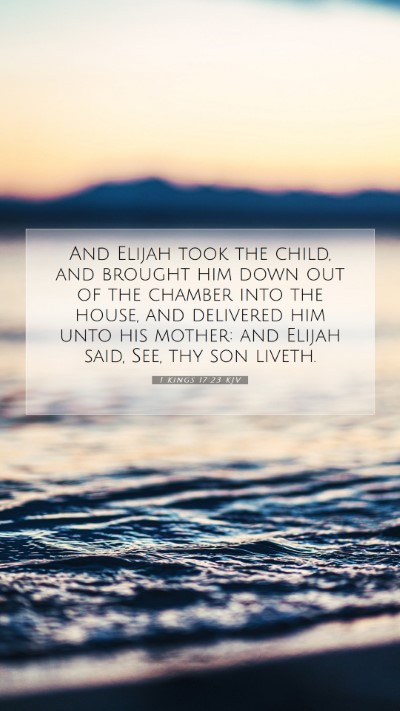Old Testament
Genesis Exodus Leviticus Numbers Deuteronomy Joshua Judges Ruth 1 Samuel 2 Samuel 1 Kings 2 Kings 1 Chronicles 2 Chronicles Ezra Nehemiah Esther Job Psalms Proverbs Ecclesiastes Song of Solomon Isaiah Jeremiah Lamentations Ezekiel Daniel Hosea Joel Amos Obadiah Jonah Micah Nahum Habakkuk Zephaniah Haggai Zechariah MalachiVerse
1 Kings 17:1 1 Kings 17:2 1 Kings 17:3 1 Kings 17:4 1 Kings 17:5 1 Kings 17:6 1 Kings 17:7 1 Kings 17:8 1 Kings 17:9 1 Kings 17:10 1 Kings 17:11 1 Kings 17:12 1 Kings 17:13 1 Kings 17:14 1 Kings 17:15 1 Kings 17:16 1 Kings 17:17 1 Kings 17:18 1 Kings 17:19 1 Kings 17:20 1 Kings 17:21 1 Kings 17:22 1 Kings 17:23 1 Kings 17:24

